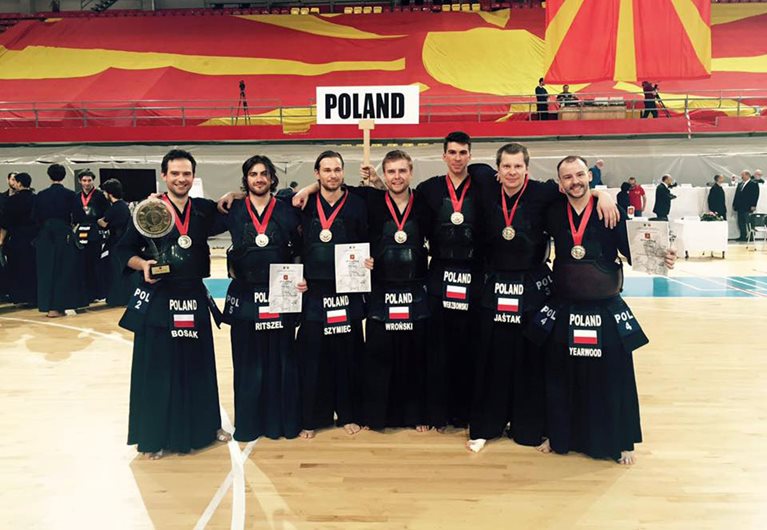Kasper, a senior business analyst in our Warsaw office, leads a double life: when he’s not working, he’s practicing the modern Japanese martial art, kendo. He’s notorious among taxi drivers for quick changes en route to the Warsaw Kendo Club, the dojo or gym where he trains with Poland’s National Kendo Team, which placed second in this year’s European Kendo Championship in Macedonia – a big achievement since the sport was introduced to the country in 1973. For Kasper, it was the realization of a dream.
Interviewer: How did you get into kendo?

Kasper: It was kind of an accident. In high school, I worked out in my garage gym with a friend. Our loud music started attracting attention. One day, a girl showed up lugging a couple of huge bags. She asked if she could train with us. We were curious about the bags and the girl so we agreed.
She was practicing kendo, and the big bags contained a bamboo sword called a shinai, and body armor called bogu. I liked her and ended up joining her for training to try to spend more time with her. It turned out to be a short window; she quit the sport a few weeks later. In the meantime, I fell in love with the sport, if not the girl.
Interviewer: What about the sport captivates you most?
Kasper: I love that there is an athletic component and a philosophy of respect for others and deep introspection. Practice begins with washing the shinai with water. We line up for a formal greeting, bow to our sensei and each other, and meditate for a few moments. There are multiple elements that instill self–control, discipline, and motivation.
Interviewer: Do you think practicing kendo has helped you in your professional life?
Kasper: There are some synergies. Kendo injects self–confidence that translates into calmness in tense or delicate situations. It has taught me to control my emotions in such situations. I also learned management skills serving as the team captain at University of Glasgow and London School of Economics.
Interviewer: How do you balance your career at McKinsey with your training schedule?
Kasper: It wasn’t easy at first. McKinsey was my first full–time job, so my learning curve was steep. I was working a ton and gained 10 kilograms. I remember stepping on a scale in a hotel bathroom in Thailand thinking: “What’s happening? This has to stop.” When I returned to Poland, I hired a fitness coach who helped me lose 15 kilos over about six months. Then I rebooted my kendo career.
In the beginning, I tried to block time myself which didn’t always work very well. Once I shared my goal of joining the national team with my colleagues, they jumped on board to help me. Now, my colleagues support and encourage me. When I join a new team, one of the first questions I’m asked is “When is your training this week?”
Whether I’m working in Barcelona or Bangkok, I bring my shinai and bogu so I can practice in local dojos. Training takes a couple of hours a day plus most of my weekends and vacation time. It’s a grueling schedule, but having my colleagues behind me helps so much. I thought I would take a break after the championships, but we have a saying in Poland: ‘As you eat, your appetite grows.’ I’m aiming for gold in the next European Championships in Budapest.